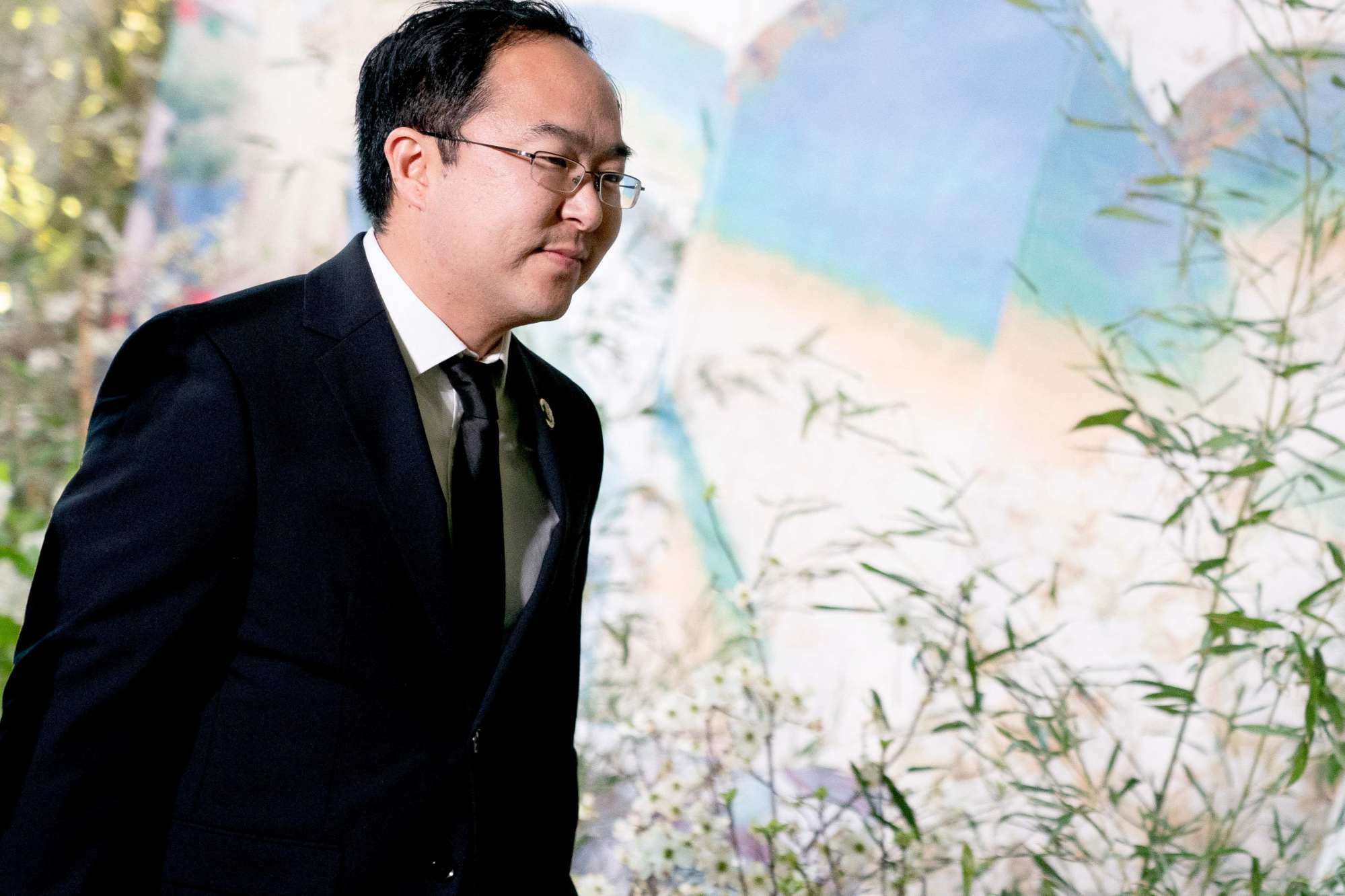
US and China can cooperate even in a time of heightened tensions, a House member says
- Representative Andy Kim, a Democrat on the House select committee on China, notes that working together ‘does not preclude deterrence or preclude competition’
- Remarks come at event to announce a joint project by the Brookings Institution and Centre for Strategic and International Studies on improving US-China collaboration
A member of the House select committee on China argued for continued US-China cooperation despite increasing tensions at a think tank event Tuesday to unveil a new initiative on how the two countries might work together.
“Collaboration does not preclude deterrence or preclude competition or vice versa,” said Representative Andy Kim, Democrat of New Jersey, who also sits on the House foreign affairs and armed services committees.
Kim spoke at an event held by the Washington think tanks Brookings Institution and the Centre for Strategic and International Studies to announce a joint two-year project called “Advancing Collaboration in an Era of Strategic Competition”.
According to the CSIS website, the initiative will seek to “diagnose barriers now impinging on collaborative efforts” and “develop a playbook of best practices” to improve the effectiveness of collaboration across different domains.

Kim called much of Capitol Hill “reactionary” and urged a longer-term, more “strategic” consideration of the bilateral relationship, placing it in the broader context of US national interests like climate change, global health and emerging technologies.
Kim called rhetoric on China from some fellow legislators that was “unhelpful, untrue and reckless”. Citing the Chinese balloon transit across the US in January, Kim recalled, one Congressional committee chairman had even said on TV “that perhaps there’s a biological weapon flying over the United States”.
The US and China, Kim contended, were in the “early stages” of a “new paradigm shift” and that a “tremendous opportunity” existed to redefine the relationship.
Kim’s remarks struck a different tone from much of the rest of the bipartisan 24-member committee, formally known as the Select Committee on the Strategic Competition Between the United States and the Chinese Communist Party.
US and Chinese diplomats hold ‘candid, constructive, fruitful discussions’
Since its establishment in January, the panel has largely focused its rhetoric and initiatives on countering Beijing. Though it has no legislative authority, it is mandated with presenting policy ideas to standing committees by the end of the year.
On Monday evening, members of the committee hosted Chinese dissidents at the US Capitol Building to commemorate the Tiananmen Square crackdown, with House Speaker Kevin McCarthy in attendance.
The Brookings-CSIS initiative will include historical case studies, practitioner and expert workshops, “proof of concept” exercises, strategy reports and translations of Chinese perspectives, according to the CSIS website.

Lily McElwee, a CSIS fellow who is one of the initiative’s core members, suggested that it would not seek cooperation “for the sake of cooperation”.
“When we think about China, we don’t have to play to a kind-hearted sense of … needing cooperation. We can play to their national interests,” she said.


